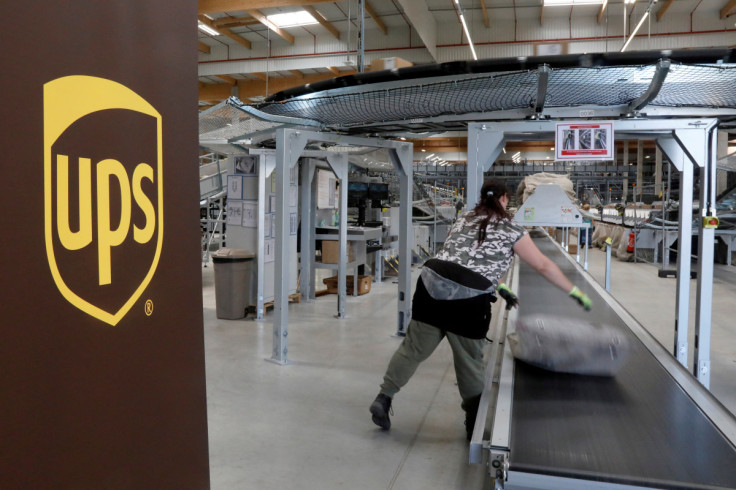Recent data reveals UK parcel volumes experience first drop in over a decade
New data reveals a noteworthy drop in UK parcel volumes, marking the first decrease in over a decade. However, the global parcel shipping index saw a modest growth of one per cent due to Chinese lockdowns.

The parcel or packaging industry has become an important measure of economic activity and consumer behaviour. The UK, long regarded as a centre of trade and innovation, has seen a significant shift in package quantities throughout the years.
From the continuous increase in e-commerce to the global COVID-19 pandemic-induced interruptions, the rate of parcel volumes in the UK illustrates the changing preferences and challenges that both businesses and consumers confront.
Recent data by Pitney Bowes data offers insight on a rare fall in package quantities following a decade of expansion, and how many variables, including pandemic effects and shifting market trends, have contributed to this significant shift.
The data has revealed that the UK parcel volumes have fallen for the first time in more than 10 years. Pitney Bowes' latest Parcel Shipping Index, which includes data from 13 key nations, also discovered that after two years of pandemic-fueled expansion, global parcel volumes climbed only one per cent in 2022. This is primarily due to Chinese lockdowns.
In 2022, the UK had a total of 5.1 billion parcels sent, received, and returned, a five per cent decrease from 5.4 billion shipments in the previous year. This drop is due to a seven per cent fall in e-commerce sales. Brick-and-mortar stores surpassed their online counterparts, as Amazon suffered its lowest-ever annual growth rate in the country, at 5.2 per cent. This is the first time the UK has seen a decrease in parcel volumes since 2013.
Pitney Bowes expects UK parcels will pick up, projecting an increase to 5.6 billion by 2028, with a one per cent CAGR from 2023 to 2028. According to the recent Index, 14 million parcels were dispatched in the UK daily in 2022, which is approximately 162 parcels each second.
The country's per capita parcel volume fell marginally from 80 to 76 in 2022, with an average of 181 parcels dispatched per household. The British parcel market is extremely consolidated, with the top five carriers (Royal Mail, Hermes, Amazon Logistics, DHL, and UPS) accounting for 71 per cent of all parcel shipments. In GBP terms, postal revenues witnessed a 2 per cent fall, shifting from £18.7 billion to £18.3 billion.
Speaking on these developments, Georges Berzgal, Pitney Bowes' Chief Revenue Officer and SVP worldwide e-commerce emphasised that the unprecedented year-on-year drop in deliveries serves as a reminder "that the e-commerce industry is not immune to broader economic trends".
The chief revenue officer stated that customers are tightening their budgets due to the ongoing cost of living problem, leading to fewer online orders.
He stressed the importance of carriers adapting to changing consumer preferences, such as increasing demand for both same-day delivery and environmentally sustainable or Click-and-Collect services. He warns that otherwise, buyers will be distracted by market competitors or the option of buying in person.
This year's Index also discovered a direct connection between parcels per person and Gross Domestic Profit (GDP) per capita in countries such as the United States, Germany, Brazil and India. Parcels in China, Japan, and the United Kingdom exceed GDP per capita, indicating a high percentage of exports and deep e-commerce penetration.
Meanwhile, parcels per person in Norway, Sweden, and Australia trailed GDP per capita, indicating a low level of e-commerce penetration.
China's parcel growth, largely driven by a 23 per cent CAGR between 2017 and 2022, saw its pace significantly slowed due to lockdowns and COVID-19 disruptions, barely managing a two per cent increase, making it the slowest growth rate in the history of the Index. Pre-pandemic projections had estimated a 25 per cent CAGR growth between 2018 and 2022; however, the actual growth stood at 22 per cent CAGR.
The current UK Index shows an increasing demand for same-day delivery, with 56 per cent of online customers prioritising it, up from 33 per cent in 2021. Also, in line with the growing adoption of electric vehicle (EV) fleets in the UK, more carriers are focused on zero-emission deliveries.
Royal Mail, for instance, deployed its 4,000th EV van from its Blackpool office in January 2023 as part of its objective to reach net zero by 2024, with plans to use electric vehicles for all deliveries and pickups in the area.
Furthermore, investment in smart parcel lockers is predicted to make the UK one of Europe's largest parcel locker networks. In 2022, parcel volume was 5.1 billion, a five per cent decrease from 5.4 billion in 2021.
© Copyright IBTimes 2024. All rights reserved.






